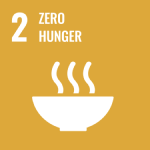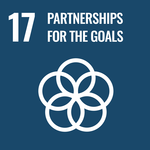Regulation and compliance
Conducive policy and regulatory environment: Strategy
Sustainable Development Goals
<p><span style="color: rgb(0, 0, 0);">This project supports the continuous upgrading and updating of the Trade Development Strategies (TDS) function and related tools and methodologies. It also supports the maintenance of Global Public Goods such as Trade Strategy Map, as well as communications and outreach throughout the year. Finally, it supports business development activities, leading to W2-funded projects.</span></p><p><span style="color: rgb(0, 0, 0);">The TDS programme is a critical component/intermediate outcome of ITC’s core service “A more conducive policy and regulatory environment for MSMEs”. TDS are often an entry point and compass for ITC’s coordinated interventions in a country, as it systematically identifies opportunities and weaknesses, and defines specific and timebound plans of action for trade development. The process of designing a TDS also build awareness among stakeholders and structures that increase the chances of successful implementation of identified projects and interventions. </span></p><p><span style="color: rgb(0, 0, 0);">In 2022, this project focused on quality, innovation, network-building, and business development. Notable outputs include:</span></p><p><span style="color: rgb(0, 0, 0);">1. The peer review mechanism was reviewed and upgraded with the aim of achieving a higher quality and more consistency among strategies facilitated by ITC. The NES for South Sudan and Vietnam were reviewed against the new mechansim, as was the sector strategy for Nepal.</span></p><p><span style="color: rgb(0, 0, 0);">2. Research on strategic foresight conducted, and discussions with ETH Zurich and University of Geneva ensued, with a view to partnering.</span></p><p><span style="color: rgb(0, 0, 0);">3. A retreat was held for all export strategy staff and HQ-based consultants, with the aim of re-aligning ITC's work in strategy, through highlighting essential characteristics in process and methodology. This was followed by Trade Strategy Clinics that focus on particular technical aspects of process and methodology in detail.</span></p><p><span style="color: rgb(0, 0, 0);">4. A new and upgraded user interface for the Strategy Management Implementation Tool (SIMT) was designed and developed. An upgraded version of the SIMT will be deployed during the first half of 2023.</span></p><p><span style="color: rgb(0, 0, 0);">5. A network of strategy-makers was re-established, and the first edition of the Trade Strategy Forum organised in Geneva. 40 participants from 18 countries shared experiences and debated best practice on "The Challenges Of Implementation".</span></p><p><span style="color: rgb(0, 0, 0);">It is expected that 2023, which marks the 20th anniversary of trade and export strategy at ITC, will be a continuation of this work, with a particular focus on quality/training and network-building, albeit to a lesser degree, given a smaller budgetary allocation. </span></p><p><br></p>
Global: Improving readiness to comply with trade regulations - a self-assessment tool
Sustainable Development Goals
<p>This project aims to create a self-assessment tool online for firms to evaluate their export readiness in terms of meeting partner country regulations. The three modules of this tool will enable a better access to regulations, comparing requirements across countries and with international standards, and finally assessing a firm’s “readiness to comply”.</p><p>As such, the tool contributes to a better understanding of regulations, allowing micro, small and medium-sized enterprises to concentrate on a what they should focus on rather than trying to understand legal texts and their implications.</p><p>The project will contribute to reducing trade cost by limiting the time spent on searching regulations and understanding legal texts. Il will also help firms avoid costly mistakes related to non-compliance, allow exporters to identify potential markets and provide a better evidence base for policy makers when issuing new regulations or seeking regulatory convergence.</p>






